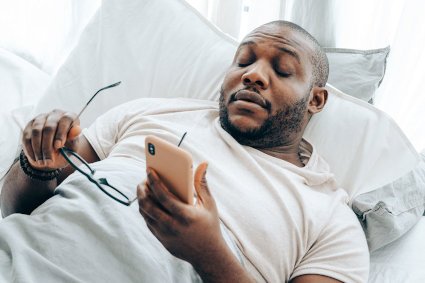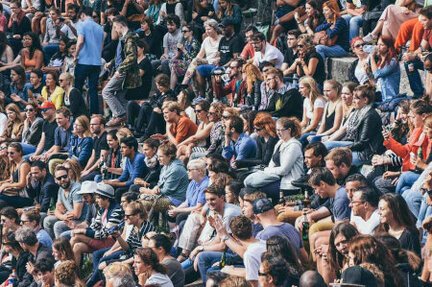PTSD and Sleep: Here is What You Need to Know

If you suspect that you may have PTSD, it’s essential that you reach out to a medical professional. Likewise, if you or a loved one is exhibiting self-injurious or harmful behavior, call 911 immediately.
To highlight the connection between PTSD and sleep disorders, AcousticSheep explored this trauma-induced condition, its symptoms, and potential treatments. Additionally, because getting good sleep is essential to both mental and physical health, we also explain how SleepPhones® headphones can be a helpful tool for those who struggle to get enough sleep.
What is PTSD?
Per the APA, PTSD is a mental health condition that can occur after a person has lived through or witnessed a terrifying event. A natural disaster, terrible accident, terrorist act, war, rape, or other violent assault can all trigger PTSD.
What are the Symptoms of PTSD?
PTSD symptoms can start as early as one month after the traumatic event, although it is not uncommon for after-effects to appear years later. They can cause severe problems in relationships and careers and even interfere with daily tasks like eating, sleeping, or concentrating. More specifically, symptoms of PTSD can include:
- Avoidance of people, places, or things
- Being easily startled
- Difficulty focusing
- Emotional numbness
- Insomnia
- Intrusive thoughts
- Irritability
- Memory problems
- Negative self-reflection
- Paranoia
- Relationship problems
- Self-destructive behavior
- Severe emotional distress
This list of symptoms is not comprehensive. Everyone copes with the emotional strain of a traumatic event differently, and the symptoms of PTSD are unique to the individual. If you have PTSD, it’s critically important that you seek professional medical help.
How Sleep and PTSD Affect Each Other

According to a study of veterans published in the European Journal of Psychotraumatology, nightmares and insomnia are hallmark symptoms of PTSD. The study’s author, psychiatrist Saskia van Liempt, found that disturbed sleep from nightmares increases the risk of PTSD. In turn, PTSD leads to fragmented sleep cycles, which can perpetuate PTSD symptoms, and ultimately create a perpetual circle of insomnia and PTSD.
Saskia van Liempt notes, “The restoration of sleep in patients with PTSD may improve sleep-dependent neuroplasticity and stimulate recovery.” Essentially, it’s imperative to break the bad sleep/PTSD cycle to cope with and treat the disorder.
Why Do People With PTSD Struggle to Sleep?
According to the U.S. Department of Veterans Affairs National Center for PTSD, difficulty sleeping and nightmares are two well-known symptoms of PTSD. The reasons for fragmented sleep can include:
- A feeling of needing to be alert for danger continually
- Being worried or having negative thoughts
- Chronic pain or other medical problems
- Nightmares
- Using drugs or alcohol to cope.
Who is More Likely to Develop PTSD?

It’s important to note that not everyone who lives through a traumatic event develops PTSD. According to the National Institute of Mental Health (NIMH), persons who become injured during the incident or see another person get hurt are more likely to get the disorder. Losing one’s home or livelihood or other stressors, in addition to the original trauma, also raises the likelihood of getting PTSD. Conversely, the NIMH says, if a person receives support from family, friends, or a support group, they may be less likely to develop PTSD.
While it can feel like you’re alone in this battle, know that many others are contending with this condition. About one in 11 U.S. adults will be diagnosed with PTSD in his or her lifetime..
Seek Assistance for PTSD Sleeplessness

Help Yourself Get the Rest You Need

All product and other information obtained through or presented on the Site is for informational purposes only. You should consult with a qualified healthcare professional for specific information about any personal care, healthcare or medical needs. The products provided through and the information provided on the Site are not intended to substitute in any manner for medical treatment, medical advice, or medical diagnosis by a doctor or other healthcare professional. You should not forgo, change or stop any tests or treatments that have been prescribed or recommended by any of your healthcare provider(s) without first consulting with your healthcare provider(s). You should not rely on any product you receive through or any information you receive from the Site when making any personal care, healthcare or medical decision, including but not limited to any decisions about treatment, testing, diagnosis or follow up. IF YOU ARE, OR SUSPECT THAT YOU ARE EXPERIENCING A HEALTH EMERGENCY, PLEASE CALL 911.
Find more about managing stress at our "Stress and Sleep" resource page.
